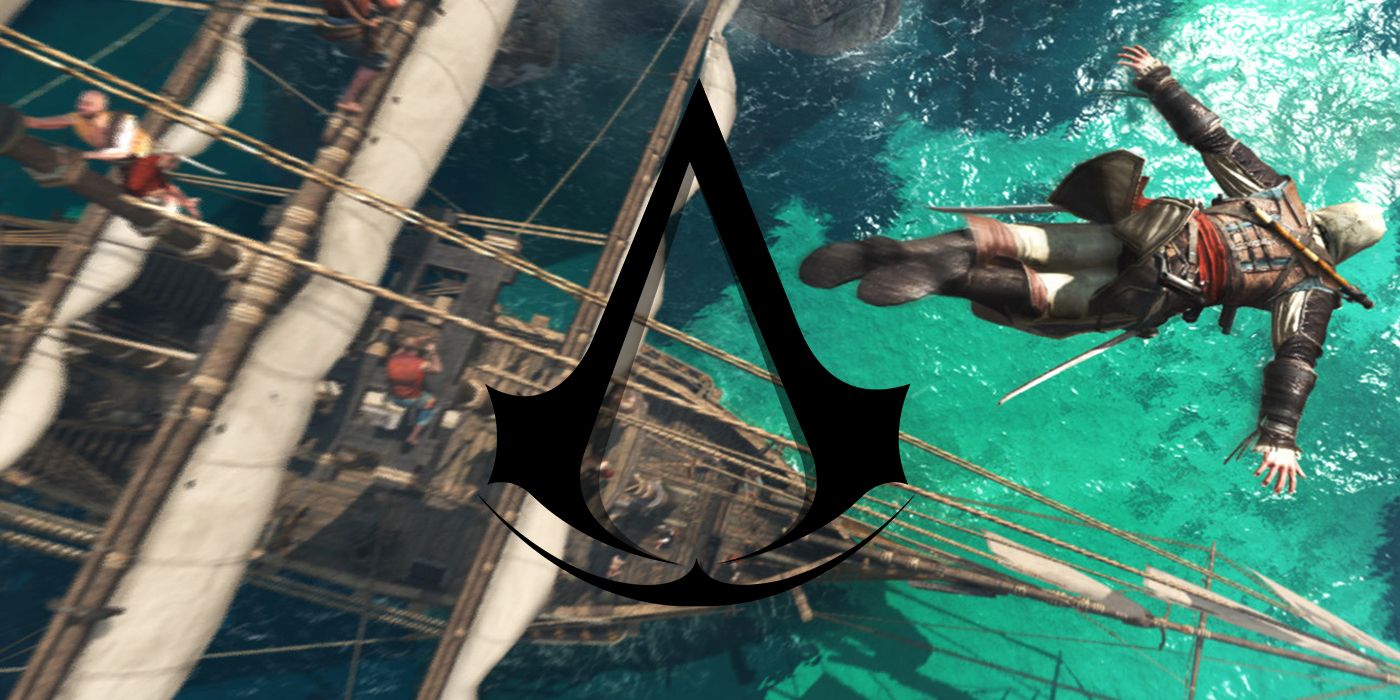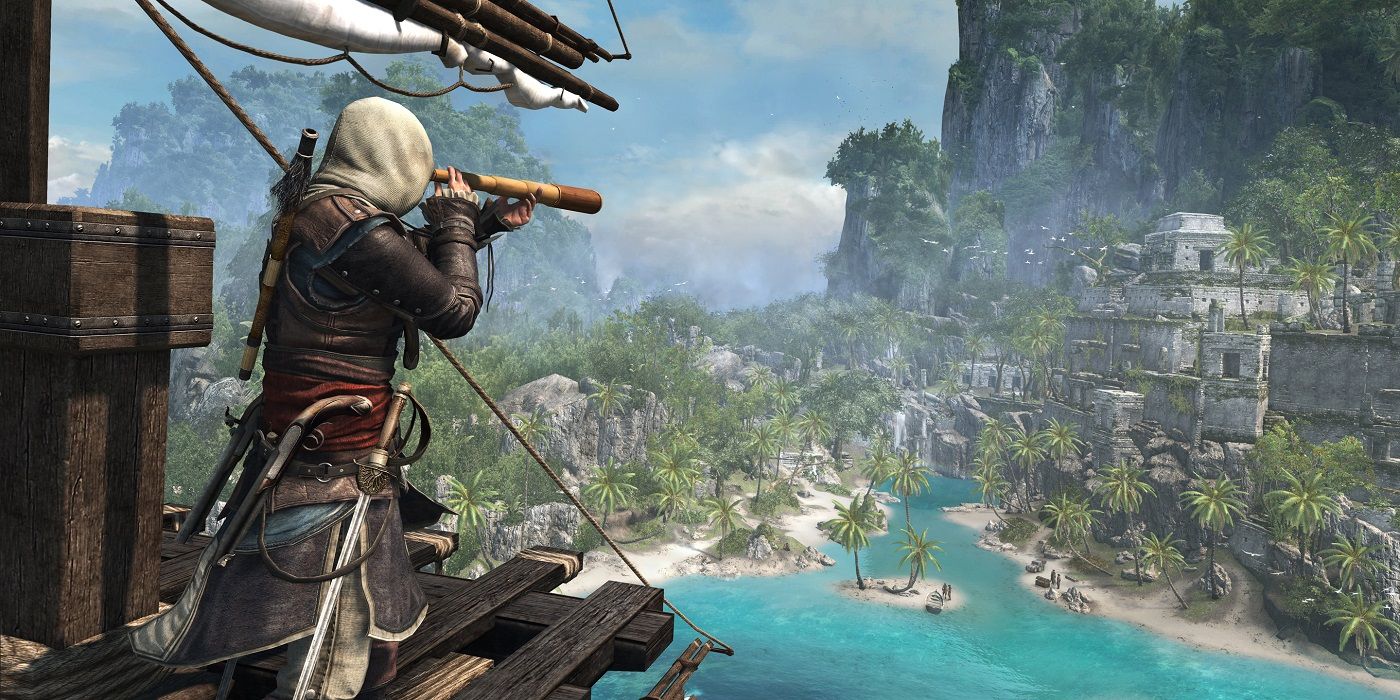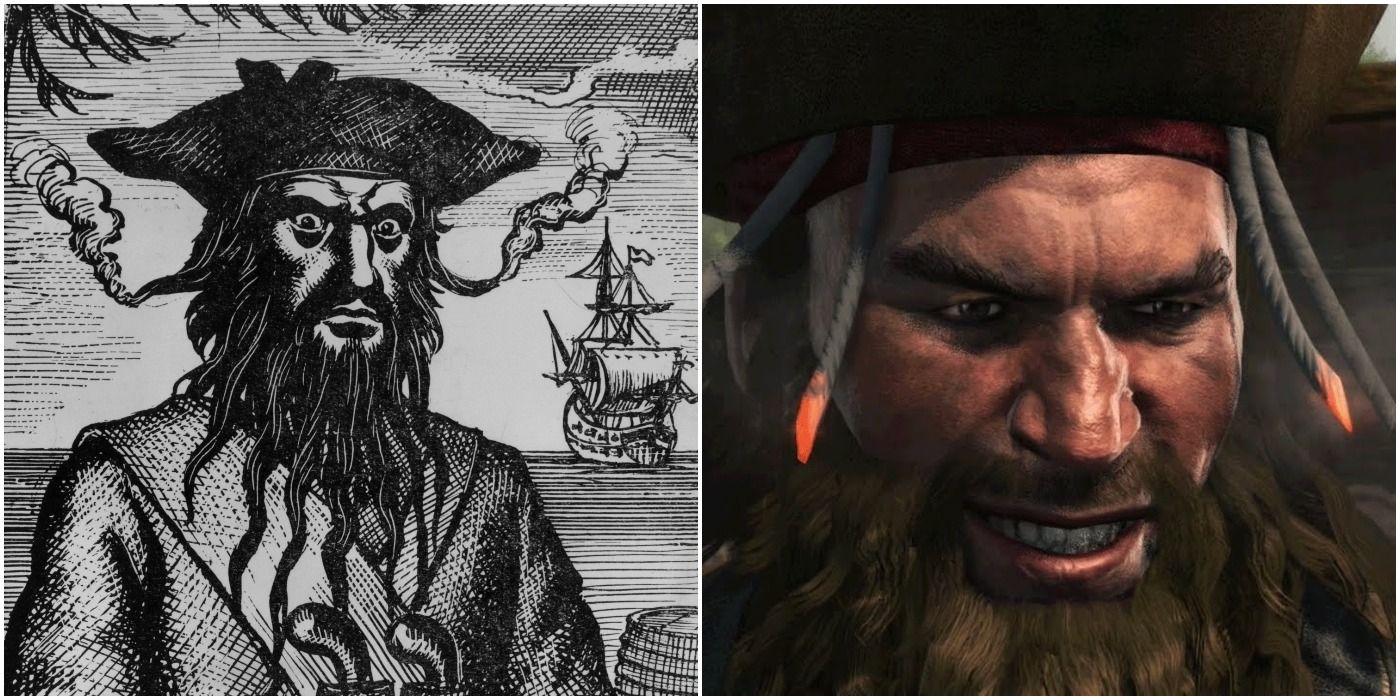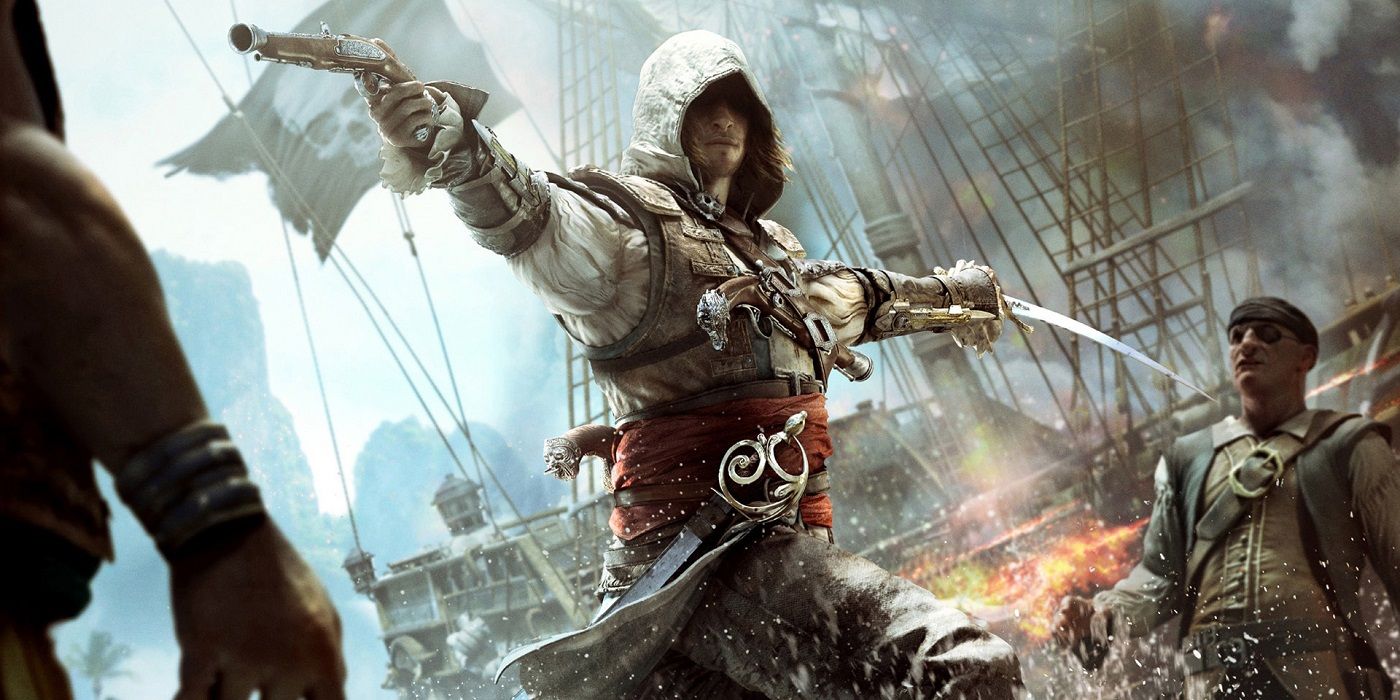
The Assassin's Creed franchise has graced screens for about 14 years now, kicking off with the original game in 2007. Since the first entry launched, the Assassin's Creed games have evolved, becoming something almost completely different than its original games. There have been ups and downs, though one game still holds the crown even eight years after its release. That game is, of course, Assassin's Creed: Black Flag.
A cross-generational entry in the franchise released during the transition from the Xbox 360 and PS3 to Xbox One and PS4, Black Flag was hailed for its technical and graphical improvements as well as its open-world expl0ration, combat, and story. It was the biggest and boldest game the franchise had seen up until that point, and while there are fair criticisms of the game, it has withstood the test of time.

Ask fans what their favorite element of Assassin's Creed is, and most will likely answer its iconic imagery - a mysterious hooded figure pushing through a crowd to execute a perfect assassination with a hidden blade. But there are deeper elements that make Assassin's Creed such an excellent franchise, one of the key underlying factors being its open world. A good Assassin's Creed game has breadth, and Black Flag managed to capture that better than any other game in the franchise before or since.
It's hard to describe the exact reason, but there's a certain allure to the open ocean that's seemingly hidden away in everyone. Maybe it's the portrayal of pirates in media like Pirates of the Caribbean, or perhaps it's some deeper, inherent draw that humans have to adventure on the open sea. Either way, there's a sense of freedom there that's just aching to be captured, a feeling that few games have successfully managed to capture.
Enter Assassin's Creed Black Flag, one of the few games to tackle piracy in the modern era of games. While there have been impressive examples in the time since, just look at Sea of Thieves, there have been suspiciously few games that let players live out their pirate fantasies. The lack of other games in the genre was something of a boon for Black Flag, though, as it made it all the more memorable.

The Assassin's Creed games have emphasized history in their stories since the franchise's inception, and while that emphasis has declined as the franchise moved further into "uncharted" eras, there were still some key historical figures to be found within Black Flag. The difference, however, is that Black Flag wasn't afraid to ditch historical accuracy in the name of a cool moment, all while reinforcing the struggle between Assassins and Templars.
That's an important thing to distinguish. In prior entries, it always felt a little bit odd the have the same characters involved with some of history's sweeping moments. For example, Connor was present at just about every major historical moment of the American Revolution, seeing events like the signing of the Declaration of Independence all the way to the Battle of Bunker Hill.
It's an obvious way for the developers to pack in action-filled moments, though it felt a bit unrealistic given the context of the game. Sure, it's entirely plausible that a lone Assassin would find themselves a key figure at historical events like those presented in Assassin's Creed 3, but chaining together each of them feels highly unlikely. Considering how much of the audience will be familiar with the events as they transpired, particularly where the US audience is concerned, it even starts to feel a bit campy.
The lesson to learn, then, is that Assassin's Creed games should take aspects that many people are familiar with, but might not necessarily be well researched on. Ushering in iconic pirates like Ben Hornigold and Blackbeard gives the game a few familiar touchstones, but it's not enough to beath the player overhead with. That's a solid balance to strike, and Black Flag managed the balancing act perfectly.

One of the biggest complaints with recent Assassin's Creed games has been the simple fact that players don't get to play as a member of the Assassin Brotherhood, and with Assassin's Creed Valhalla and Odyssey specifically, even resembling an Assassin can take a pretty intense time investment. For instance, Valhalla tucks away the Hidden Ones robe, the most Assassin-like garments in the base game, in different corners of the map.
Black Flag set the precedent that players didn't necessarily need to be a real Assassin for the majority of its runtime, relegating Edward Kenway to the role of an overly enthusiastic cosplayer until the endgame. However, it did offer a bounty of customization options for both Edward and his ship the Jackdaw. Those options allowed players to maintain the look of an Assassin, while also offering options that felt removed from the Assassin Brotherhood.
Throughout the game, Edward makes regular contact with the Brotherhood but is apprehensive to join them, pursuing his own selfish desires instead of joining with the Assassin's cause. Narratively, it reinforces who Edward is as a character, making the unfurling of a pirate flag with the Assassin's logo all the more satisfying at the end of the game. As far as customization goes, though, it allows players to feel like an Assassin without necessarily having to be one. Meanwhile, newer games reinforce that the player isn't an Assassin through contact with the Hidden Ones and their lack of visually distinct robes.
In Black Flag, All of these elements combine together to create a perfect Assassin's Creed game. It's open, it features the struggle between Templars and Assassins that players have been longing to return to, and there's a bounty of side activities that help sell the pirate fantasy. All of that, plus it's the best refinement of classic Assassin's Creed mechanics that the series has seen to date. It's the perfect template for future Assassin's Creed games, but it all depends on how Ubisoft decides to move the series forward.
Assassin's Creed: Black Flag is available now on PC, PS4, Switch, and Xbox One.

